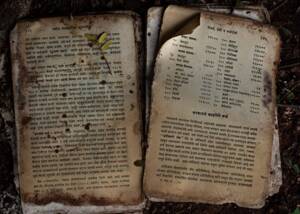Logbook - Everything on course
News News blog
A logbook is a customary form of recording and archiving the speed measured using the log, the route travelled and daily events and procedures.

It is organised chronologically and is not intended for publication. In principle, a logbook serves as evidence and is binding, as it is used to investigate a possible accident or to reconstruct the course of an accident.
The following is initially entered in the logbook on an hourly or four-hourly basis: the course steered, the ship's speed as determined by measuring instruments, the drift, engine power and manoeuvres with the engine in the case of motor vessels, sail management, wind direction and force, weather conditions, cloud cover, soundings as well as barometer and thermometer readings in the case of sailing vessels. All special events during the watch are also recorded.
Some logbooks have achieved historical or literary significance, such as the logbook of Christopher Columbus and the logbook of Captain William Bligh's Bounty.










